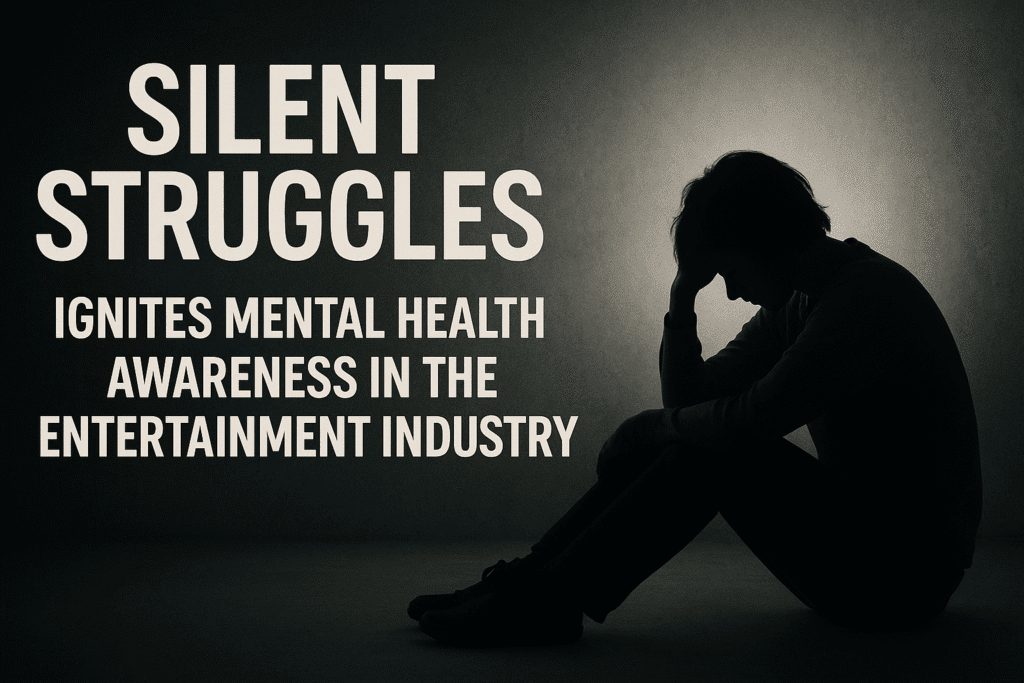July 30, 2024 – Lila Stryker, the acclaimed documentary filmmaker known for her unflinching exploration of complex social issues, premiered her latest film Silent Struggles at the Sundance Film Festival in Park City, Utah, on July 30, 2024. The film, which sheds light on the mental health challenges faced by young professionals in the creative industries, quickly gained national attention and sparked widespread conversations on the topic.
Through raw interviews and intimate portrayals, Silent Struggles delves into the hidden struggles of mental health within the high-pressure world of film, music, and other creative professions. The documentary’s powerful message resonated with viewers both within and outside the entertainment industry, becoming a catalyst for change in how mental health is discussed in these high-stakes environments.
Unveiling the Silent Struggles of Creative Professionals
Silent Struggles is a deeply personal and insightful film that gives a voice to those who are often overlooked in conversations about mental health. Featuring candid interviews with several young professionals in the creative industries, the documentary paints a striking picture of the psychological toll that a career in the arts can take. From rising stars in Hollywood to musicians navigating the pressure of fame, the film explores the stigma surrounding mental health in a world where vulnerability is often seen as a weakness.
The documentary’s portrayal of young professionals grappling with anxiety, depression, and burnout is both eye-opening and heartbreaking. It provides a rare glimpse into the behind-the-scenes lives of these individuals, humanizing their experiences and shedding light on the often invisible struggles they face in pursuit of their careers. The film paints a stark contrast between the glamorous exterior of the entertainment industry and the mental health challenges that its brightest stars quietly endure.
What sets Silent Struggles apart is its authenticity. Through Stryker’s lens, the audience is introduced to a range of individuals who openly share their personal battles. Their raw and unfiltered stories break down the barriers that often prevent people from discussing mental health, making the film a powerful tool in fostering empathy and understanding.
The Premiere and Panel Discussion: A Turning Point for Mental Health Awareness
The premiere of Silent Struggles at the Sundance Film Festival was a milestone event not only for Stryker’s career but also for the larger conversation about mental health in the entertainment industry. After the screening, a panel discussion featuring some of the film’s key subjects, including singer and mental health advocate Quinn Harper, was held. Harper, who has long been open about her struggles with anxiety and depression, gave a moving speech on the importance of seeking help and breaking the silence surrounding mental health.
Harper’s words had a profound effect on the audience, many of whom had been moved by the film’s powerful message. The discussion allowed viewers to hear firsthand accounts of the challenges creative professionals face and offered a platform for open dialogue about the importance of prioritizing mental health. The panel highlighted how these issues are often exacerbated by the demands of the entertainment industry, but also emphasized the growing shift towards more open and supportive conversations.
The emotional impact of both the film and the panel discussion was undeniable, as it provided not only a space for healing but also a call to action for both industry professionals and fans alike. The heartfelt exchanges sparked a larger movement toward acknowledging and addressing mental health struggles in the creative world, a sector that had previously been reluctant to tackle these issues head-on.
Cultural Phenomenon and the Lasting Impact of “Silent Struggles”
Silent Struggles quickly became more than just a film—it became a cultural phenomenon. In the days following the premiere, the documentary gained significant traction across social media platforms, with many industry insiders and celebrities sharing their own mental health journeys. The film’s message resonated so deeply that it sparked a nationwide conversation about mental health, particularly within the entertainment industry, which had long been resistant to addressing such topics.
The documentary’s success was reflected in its numerous awards and nominations, solidifying Lila Stryker as a leading voice in using film as a platform for social change. The film’s profound impact on the entertainment world cannot be overstated. Many individuals, including high-profile celebrities and young professionals, credited Silent Struggles with giving them the courage to seek help for their own mental health challenges. As a result, there was a noticeable shift in the industry toward more open discussions about mental health, as well as an increasing number of initiatives aimed at providing better mental health resources for creative professionals.
Stryker’s influence as a filmmaker was forever altered by the film’s success. Having already gained recognition for her work on social issues, Silent Struggles catapulted her to the forefront of the conversation about mental health in the arts. Her dedication to shedding light on such an important topic has not only enriched her career but also provided a powerful example of how cinema can drive societal change.
A New Era for Mental Health in the Entertainment Industry
As Lila Stryker continues to champion the cause of mental health awareness, Silent Struggles stands as a testament to the power of film as a tool for social impact. The film has sparked a critical shift in how mental health is perceived and discussed within creative fields, helping to normalize these conversations and break down the barriers of stigma.
The lasting impact of Silent Struggles is clear—it has reshaped the way mental health is viewed in the entertainment industry, encouraging individuals to seek help and prioritize their well-being. In doing so, it has paved the way for a more compassionate and supportive environment for those in creative professions, proving that even in the most high-pressure fields, mental health matters and should no longer be a silent struggle.


